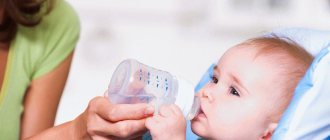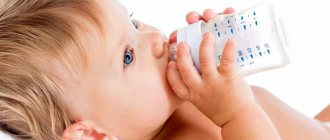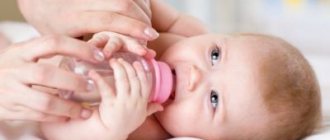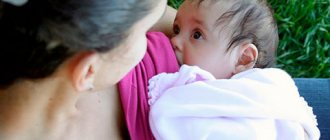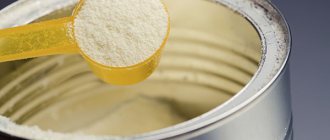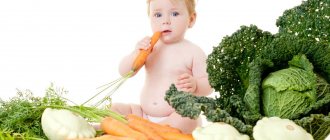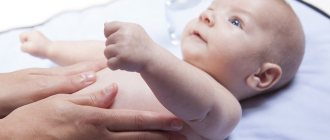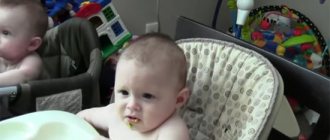The birth of a child brings real chaos and stress into the lives of new parents. One can only sympathize with young, inexperienced parents, because they have to learn a lot through trial and error. For example, how to supplement the baby with water during artificial feeding. After all, the future health of the newborn depends on feeding in the early stages of development. For young mothers, even this question seems difficult. Especially if there is no experienced person nearby who would advise what to do.
A bottle-fed baby refuses water
Mixed feeding, as well as artificial feeding of a child, has a number of differences from natural feeding. After all, infant formula contains more protein than breast milk. It is not surprising that a child’s body needs additional fluid. Moreover, in cases of lack of water when feeding infant formula, the baby may become constipated. Therefore, if a bottle-fed baby does not drink water, you need to find a way to give him something to drink. It is thanks to the additional water that bowel movements will occur, which will quickly help improve the baby’s well-being.
That is, with mixed or artificial feeding, water is given earlier than with breastfeeding. In this case, the water should be slightly cooler than the mixture and be about 26 degrees. From the third month of life, babies are given water at room temperature.
Do not forget that with the introduction of complementary foods, the need for water arises, even for those babies who were previously exclusively breastfed.
Why is additional soldering dangerous?
- Malnutrition . A baby's stomach is very small. If the baby is fed on demand, he receives as much milk as his stomach can accommodate. Having received 30 ml. water, the stomach is filled with these 30 ml. Therefore, the baby will not be able to hold 30 ml of milk. And so time after time, day after day, the baby will not receive enough milk and will not gain weight and height well.
- Decreased lactation in mother . Milk is produced according to the principle “demand creates supply.” The amount of milk the baby orders for itself by sucking the breast is how much the mammary gland will produce. The math is simple: I didn’t suck 30 ml from my breast. milk, tomorrow iron will reduce milk production by 30 ml. Drinking water at night can become truly dangerous, because... At night, the hormone prolactin is produced in response to breastfeeding, which is responsible for daytime milk production. If you didn't suckle enough, didn't stimulate your breasts at night, there will be less milk during the day.
- Disturbance of intestinal microflora . The baby is born with a sterile digestive tract. Maternal colostrum and milk contain a lot of beneficial bacteria that populate the baby’s intestines. And water simply “washes them away,” introducing an imbalance between pathogenic and beneficial microorganisms . Babies who are breastfed and do not receive any water, tea, or compotes are less likely to suffer from intestinal infections. And children who are breastfed and regularly receive water often experience such a phenomenon as dysbacteriosis.
- Breast injuries - abrasions, cracks, lactostasis. When water is given to an infant, it is most often given from a bottle. And since the mechanism for sucking the breast and the bottle is different, the baby gets confused and sucks the breast incorrectly, injures the nipple, and cracks form. Ineffective sucking due to nipple confusion also leads to ineffective emptying of the mammary gland - milk stagnation occurs.
- Breast refusal . The reason is the same bottle - the child is disoriented and confused - he has to adjust and suck differently every time. As a result, he chooses the easy way - the bottle, and does not want to suckle.
- Kidney dysfunction . In infants, the kidneys do not yet fully perform the function of removing fluid. And if additional fluid falls on them, this will increase the load on the kidneys, and it is especially dangerous that this can lead to fluid retention in the child’s body.
- Infectious diseases . Water is the source of many diseases. Of course, those who give water to infants and bottle-fed children use special baby bottled water. But are you ready to vouch 100% for its purity and balanced salt composition?
Sometimes mothers try to “deceive” the baby, who does not want to drink water, and sweeten it. On a sweet environment, pathogenic flora grows rapidly, as a result the baby suffers: a stomach ache, diarrhea or constipation, and languishing from colic and flatulence. And the mother is worried that breast milk is not suitable for her little one.
What kind of water can be given to a newborn?
It is recommended to give bottle-fed babies water some time after feeding, that is, in the intervals between them. Parents must certainly take into account the simple fact that babies have a small stomach, so they simply cannot drink a lot of water at once. Therefore, a couple of teaspoons at first will be quite enough.
Sometimes the need for fluid in a child’s body increases. The reason for this may be dry air in the room, overheating, etc. This usually happens when the baby is wrapped excessively. Against the backdrop of dry indoor air, rapid breathing is noted. This not only makes swallowing difficult, but also significantly reduces the child’s body’s defenses. The situation gets worse in hot summer weather.
What to do if the child does not want to drink milk?
If a child refuses to drink breast milk, you need to understand why this is happening. Perhaps when breastfeeding, the mother holds the baby in an uncomfortable position. It is also necessary to pay attention to whether the baby is latching onto the breast correctly. If the nipple is not grasped correctly, the mother may hear whistling and loud smacking, which means that the baby is not sucking milk, but air.
During feeding, it is very important that the baby is not distracted by anything - neither noises, nor music, nor the sounds of the TV. If for some reason the mother’s milk has disappeared, then the baby needs to be given an artificial formula.
But what kind of water should you give your baby?
Children are often given regular boiled water. But in practice, during boiling, not all bacteria present in the liquid are destroyed, and the chloride compounds in it remain in full. But even from open sources, water can be dangerous and completely undrinkable. In addition, water that is purified in conventional filters such as jugs, which are designed for adults, is not suitable for children.
Due to these circumstances, children are given exclusively children's bottled water, which can be purchased in the children's department of the store or pharmacy. The packaging will certainly contain special markings about the quality and safety of the water. Do not forget that water for infants differs in the content of minerals, sodium, calcium, magnesium and potassium.
Such water is not boiled, but it will not be stored for long.
How to teach a child to drink water?
We offer 5 proven methods:
1. Keep water accessible. The child should be able to reach out, take the bottle and drink. Often children themselves do not realize that they want water, and the usual container reminds them of this
2. Follow the five-sip rule. The child may say that he does not want to drink. Invite him to take five sips - and in the process the baby will understand that he really wants water. Works in many cases.
3. Use cunning. Drinking plain water is boring. Try throwing a couple of ice cubes in there, which will click funny against the walls, or squeeze out a few drops of orange. Some mothers add a couple of spoons of juice to the bottle: the liquid remains 90% water, but acquires a smell that is attractive to the baby.
4. Buy your child a separate cup. For example, your daughter loves princesses. Buy her a cup! And tell them that only real princesses drink from such cups - and not just any ordinary water, but magical “royal” water. Another option: invite your child to choose a cup himself.
5. Limit the number of drinks. Small children don't need soda. Of all the liquids in the house, there can be milk, juice diluted with water, compote, water itself, sweet weak tea. Invite your child to choose from this list - and do not give the next drink until the previous one is finished.
How to give water to a baby?
When supplementing, it is important to follow all recommendations so that the child will not refuse water. It is important to know what time is optimal, what the temperature of the water should be and how much liquid it is recommended to give to the child in the first months of life. If you follow these conditions, your baby will quickly learn to drink liquid from a bottle.
What time
The future health of the baby depends on the drinking regime, so it must be strictly observed and not violated. It is recommended to give water to a newborn a few hours after the main meal. It is important to remember that the baby’s stomach is small, so after eating he will not be able to drink much liquid.
It is recommended to give water to bottle-fed babies after 4-4.5 months. Give a small amount of liquid at first, and then gradually increase it. It is not advisable to give juices instead of water. The body only needs water.
How to give water to a newborn?
In order for the artificial child to drink liquid, it must be given correctly. In order for a newborn to drink water, it must be given using the following devices:
- syringe without needle;
- tablespoon;
- sippy cup;
- bottle;
- special mug.
If the mother gives water using a syringe or a tablespoon, it is important to ensure that the baby does not choke. The easiest way to top up is with a bottle. This way the child will regulate the flow of fluid himself. The sippy cup is only suitable for children who are six months old or older.
Required amount of liquid
It is important to determine in advance how much liquid the baby should be given daily. You cannot give a lot of water, otherwise the newborn will begin to refuse formula or breast milk. And it will stop receiving the nutrients necessary for the growth of the body.
The optimal volume of liquid that should be given to a bottle-fed baby is 100-200 ml per day.
But this figure is not exact, and you need to pay attention to the need for water in a newborn. If the baby does not want to drink, then there is no need to force the daily amount into him. The body itself knows how much fluid it needs.
What should I give my child?
It is not advisable to use running tap water. It contains bleach and other substances that negatively affect the baby's health. Stores sell special water for children, which is purified and contains useful microelements.
Many parents believe that it is safe to provide tap water after boiling it. But this is not recommended. During boiling, only part of the harmful bacteria is killed, while the other part remains. In addition, chloride compounds are still present in the liquid.
Water from natural sources (even if it is considered healing and healthy), purified using filters and mineral water is also not suitable.
To purify liquids, they sell special children's filters that purify water much better than regular ones. When choosing bottled water, you need to pay attention to the composition. And also find a special marking indicating that the product has been tested. Only after this you need to buy a bottle. This water can be stored for no more than a day from the moment the bottle is opened. After 24 hours the child should not be given it. And in order not to throw money away, parents can finish it themselves.
Optimal fluid temperature
The optimal water temperature is from 20 to 23 degrees. It is not advisable to give too cold water, because it promotes sore throat and colds. Hot liquid causes throat burns. The temperature should be checked in the same way as breastfeeding milk. First, drop a drop on your wrist, and only then give it to your child.
